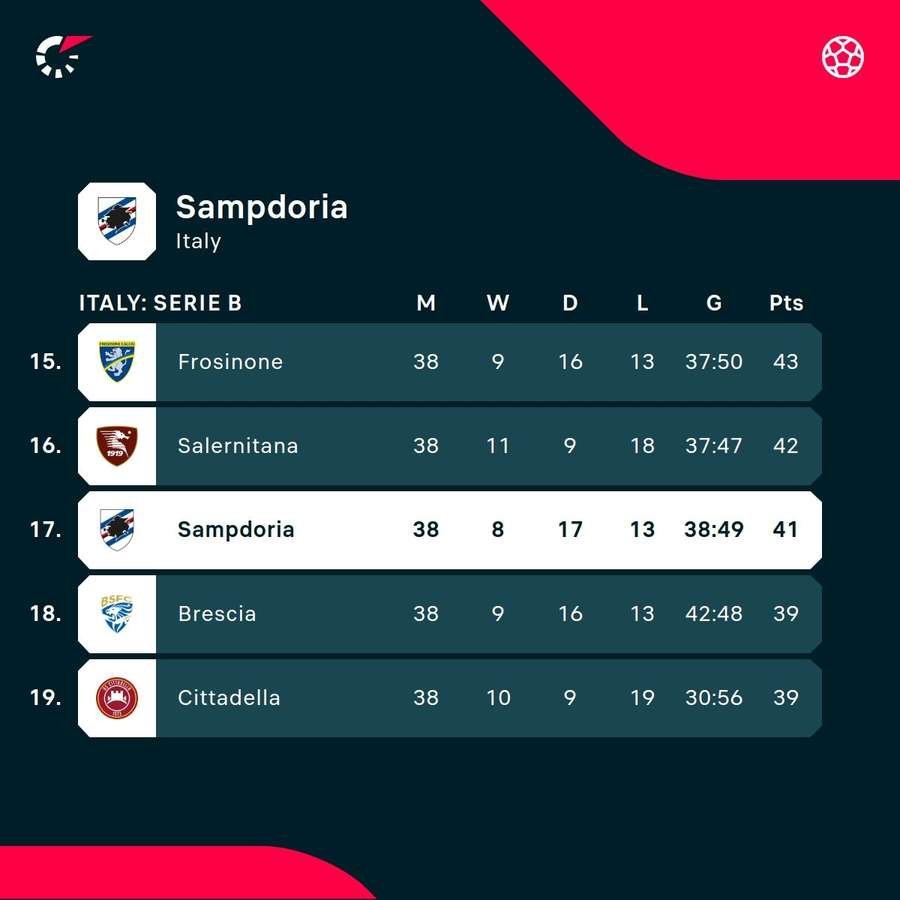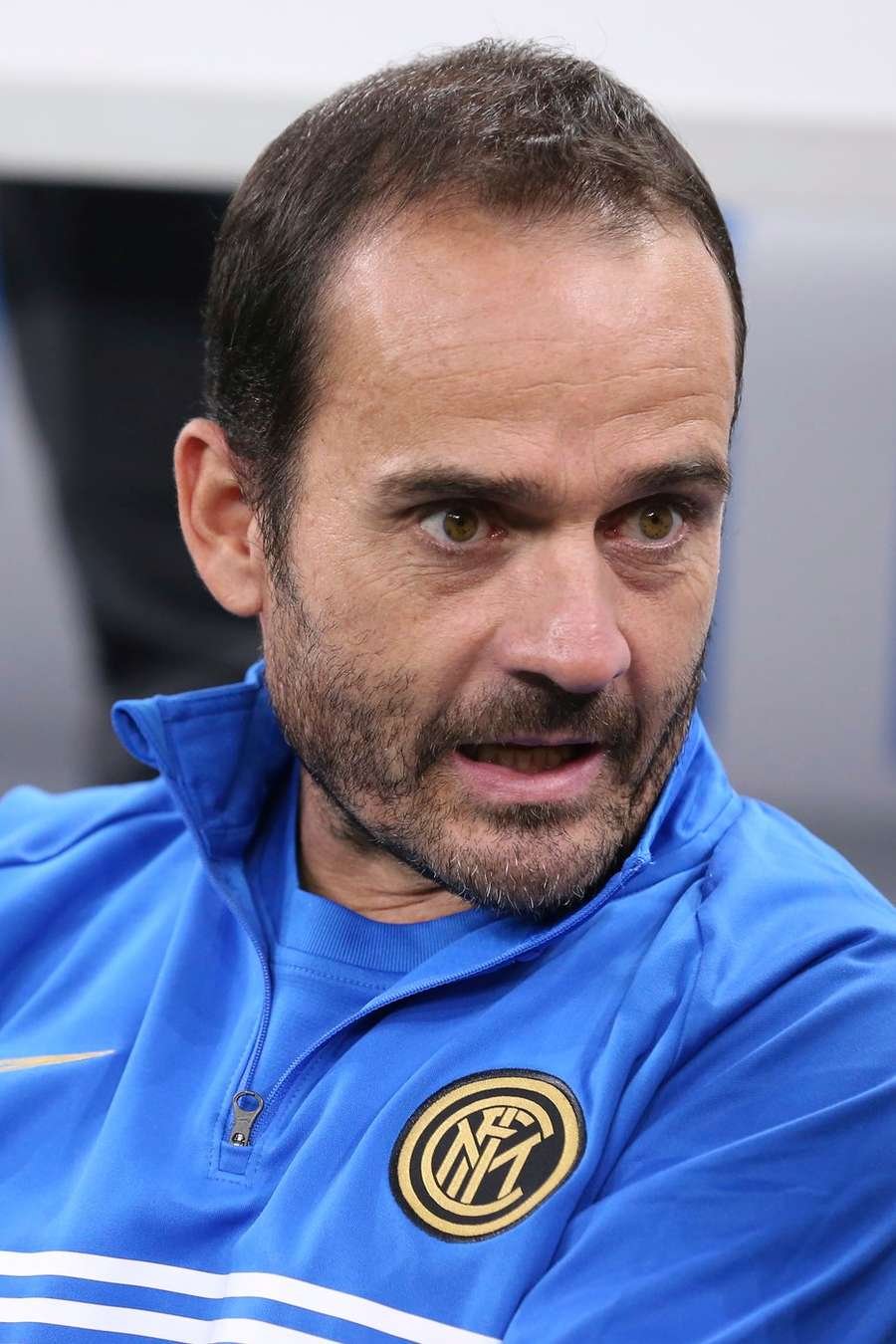In this segment, we carry on with the second part of an insightful interview conducted by Sergio Levinsky with Julio Tous, Barcelona’s fitness coach. He shares his experiences working alongside Antonio Conte at both Chelsea and Juventus, his time with the Italian national team, and much more.
You have had an extensive career across many clubs, including the Italian national team. How does it feel to see Sampdoria now playing in Serie C? (This interview took place before Brescia’s administrative relegation gave Sampdoria the opportunity to compete in the playout against Salernitana.)
“It’s incredibly difficult. Every place I’ve worked holds a piece of my heart, even if things didn’t always go as planned. The other day, I stumbled upon an article and found myself in tears, reminiscing about the fantastic atmosphere in Bogliasco and the stunning regions of Liguria towards Cinque Terre. It hit me: ‘I can’t believe Sampdoria has been relegated.’
“Moreover, I had a close friendship with their physical trainer, Paolo Bertelli, who collaborated with Andrea Pirlo at the start of this season. We had shared a strong bond over the years, which makes this situation even more painful. For me, Sampdoria has always been a distinguished club that treated me exceptionally well.
“Sampdoria was the foundation of my subsequent career adventures. It was director Marotta at Samp who later moved to Juventus, taking me along, and eventually, I ended up at Inter. It’s fascinating how the working model we established at Sampdoria was later adapted at Juventus, and subsequently, I joined the national team under Conte’s guidance.”

Flashscore
“That model was nurtured at Sampdoria, then carried over to Juventus, and later to Inter with Marotta at the helm. It’s interesting how history seems to repeat itself. Sampdoria had impressive accomplishments, even qualifying for UEFA at one time; Juventus went on to experience an extraordinary era, clinching nine consecutive Scudetti, and now Inter has arguably become Italy’s standout team in recent years.”
‘My first year at Juve was the one filled with the most pressure’
You worked alongside Antonio Conte at Juventus and also with the national team. What was that experience like?
“Initially, my involvement was not full-time; it was mostly during pre-season to help kickstart activities, and I would return periodically.
“The training sessions were effective, however, it became evident that being present every day would better address the problems that arose. When I arrived at Juventus, the atmosphere was charged with tension because of Conte’s daunting task to revive the team after they had finished seventh in consecutive seasons. Juve had even experienced relegation to the second division, and during that first year, I felt a level of pressure I’ve never experienced before.
“Results were non-negotiable, and everything had to align perfectly. The pressure was palpable for Conte, a true Juventino, facing what was likely the defining moment of his career. Navigating through that was no easy feat.
“However, we achieved something extraordinary; we ended that season unbeaten – a first in Italy’s history, going 43 games without a loss, with the sole setback being a cup final defeat to Napoli. That remarkable feat definitely eased the strain and brought recognition to all the hard work we had put in.”
‘I’ve never experienced a celebration like the one for my first Scudetto in Turin’
The difference in pressure throughout the year must have been immense, only to be rewarded with such a joyous finale.
“The celebration I witnessed was unlike anything I had ever experienced! Sure, Napoli’s recent win was moving, but what unfolded in Turin when we won our first Scudetto was truly unforgettable. The streets were flooded with fans celebrating after they had waited roughly a decade to see silverware return, especially after the turmoil of Calciopoli.
“It felt like an incredible release for everyone involved. We had entered the season as the underdogs, and it all ended gloriously.
“Ultimately, that victory was transformative for Juventus, as they began to renew the squad with a mix of seasoned champions such as Luca Toni, Vincenzo Iaquinta, and Fabio Grosso, who previously may have not been valued by the coach. Soon after, players like Paul Pogba and Arturo Vidal joined during the following pre-season, further strengthening our chances. The highlight of those three years was undoubtedly acquiring Carlos Tevez and Fernando Llorente, who recorded phenomenal goal tallies that season.
“Back then, I believe Tevez netted around 20 goals, and Llorente followed close behind with 17 or 18. It was quite remarkable, with the team racking up an impressive 102 points, a record that’s unlikely to ever be equalled in the major leagues.”
Did that reduce the pressure on you? Did you sense a shift?
“A bit, yes. The pressure is always there with Conte, but compared to that first year, it felt like post-traumatic stress had worn off. I recall that pre-season in Bardonecchia, it was as if we were besieged by fans. The tension in the atmosphere was intense, making it feel like we were under tremendous scrutiny.
“After that experience, I came to realise that after overcoming such challenges, everything that comes my way in the future will seem relatively straightforward.”
‘The Premier League is distinct from other leagues’
Reflecting on your time at Chelsea, I recall that Victor Moses had high praise for you following the successful season.
“It truly was an amazing period. Chelsea is a unique club, and the Premier League has a different feel compared to my other experiences. The stadiums positioned in city centres, surrounded by pubs, create an atmosphere full of life—matches at 3:00 pm, the crowd bubbling with excitement. While not everyone may be inebriated, the spirit is undeniably infectious, and celebrations continue long after the whistle blows; it’s a captivating tradition.
“Stamford Bridge provided a fantastic atmosphere that undoubtedly contributed to our success. Chelsea operates on a well-structured, almost American-style model. The club was led by Bruce Buck, a seasoned New York lawyer, making it more akin to an NBA franchise than a traditional football club.

ČTK / AP / Jonathan Moscrop
“We stepped in right from the start, with players emerging from a very unique situation. Two seasons prior, they had won the league with Mourinho but had faced a complete disaster the following year, finishing 10th and dismissing Mourinho. Hiddink’s brief tenure yielded no success, leaving a prestigious club like Chelsea without a spot in European competitions. Fortunately, it allowed us to concentrate solely on the league.”
‘That Chelsea team was exceptional’
“When training players of that calibre, maintaining a systematic approach each week made things simpler; having one or two rest days was manageable. Of course, football is unpredictable, and a superior opponent could always emerge, but in this case, our squad was impressive – featuring top talents like Eden Hazard and Diego Costa. Even Cesc Fabregas, who recorded around 10 assists, often started from the bench.
“We had N’Golo Kante, the league’s standout player alongside Matic and Luiz, with Courtois guarding the net. It truly was a formidable squad. We clinched the league title by a significant margin and made it to the cup final, only to lose in a penalty shootout—a defeat I felt was unjust as VAR wasn’t implemented. While we didn’t secure the double, it marked a phenomenal year for us. With the players dedicated—like Victor Moses, who was impressive—we were able to focus on our recovery and workload management.
“With such talent, positive results are almost natural. Competing against lesser teams can be overwhelming, particularly during a time when Guardiola was just starting at City and Mourinho at United, with the league largely viewed as a two-horse race. Yet, we triumphed.”
You’ve also worked with the Italian national team, which is currently struggling after missing two consecutive World Cups. What do you think is happening there?
“It’s challenging to discuss as we tend to overlook that Italy recently became European champions. It’s astounding they could achieve such success, showcasing a different reality from what many perceive. Players like Chiellini and others left with that glory in mind.
“Reflecting on the 2006 World Cup-winning squad, it featured incredible talents. I had the privilege of working alongside those champions, and they embodied excellence both on and off the pitch. Players like Buffon, Del Piero, Pirlo, Barzagli, Grosso, and Toni were exceptional, which explains their success.
“That national team was extraordinary. I recall how they returned from the European Championship after losing 4-0 to Spain, yet later, they came back to defeat Spain when we competed in the tournament in France—an experience that left a bittersweet feeling for me, as I was part of that backroom team. Their lack of continuity now appears to stem from natural cycles, similar to what we have seen with the Spanish national team.”
‘Conte is one of the greatest winners I have ever met’
And speaking of Conte, what stands out about his character?
“He’s marked by an inextinguishable passion, particularly when it comes to winning football matches. He ranks among the most accomplished winners I’ve had the privilege to know. His raw, unfiltered passion isn’t the easiest to deal with, but it’s quite rewarding when you enjoy success. Of course, when things don’t go your way, it’s best to stay out of sight.
“However, his track record speaks volumes, particularly for what he has accomplished with teams that many deemed unlikely contenders, showcasing remarkable resilience. If I had to sum him up in one word, it would be ‘winner’. A true winner who is on the brink of another Scudetto.” (This interview was conducted before Napoli clinched the Italian championship).
Lastly, who is Julio Tous? If you could describe yourself in a few words, what would you say?
“I’m still in the process of discovering who I am. Yet, after all these years—filled with many ups and downs—I believe my drive to move forward has not faded. Maintaining enthusiasm, I believe, is crucial for any professional or individual seeking to progress.
“I once heard architects, who often continue designing until their final days, discuss the longevity of their profession. Many renowned architects work well into their 90s and even beyond because they pursue their projects passionately.
“Having goals and aspirations is the essence of life for me. Once you lose sight of that vision, you face significant challenges. I consider myself someone filled with enthusiasm, always eager to learn and grow. My curiosity drives me, and I maintain a healthy appetite for knowledge.”
Compiled by SportArena.com.au.
Fanpage: SportArena.com.au.
LiveScore – Live Sports Results & Odds.




